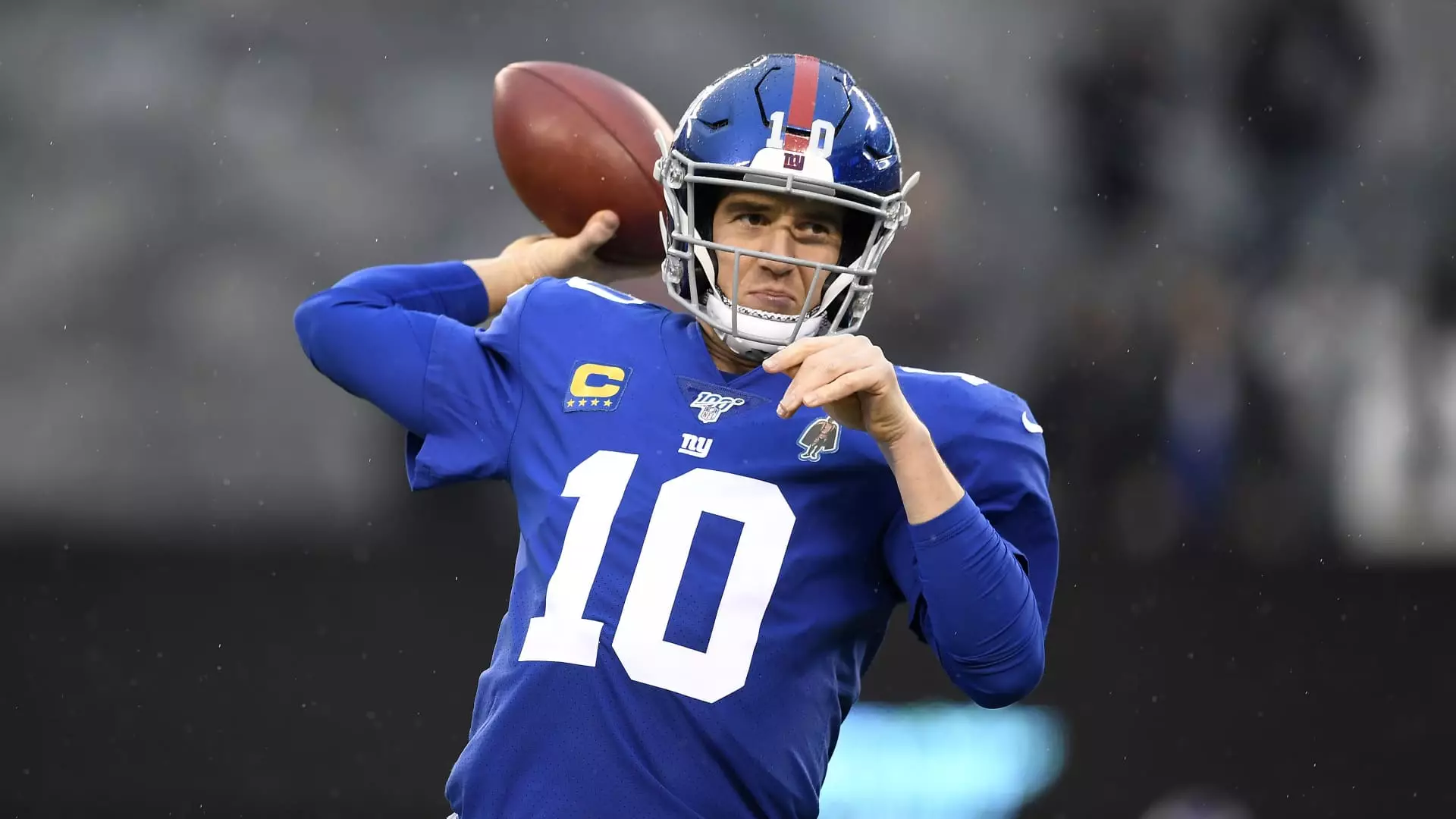In an era where sports franchises are seemingly appraised at astronomical figures, Eli Manning’s candid admission that he cannot afford a stake in the New York Giants highlights a stark disconnect within the broader narrative of sports wealth. The comfortable narrative suggests that owning a piece of an NFL team is simply a matter of throwing enough money at the problem, but Manning’s reality exposes a more insidious truth: the inflated valuations are, in many cases, detached from genuine economic fundamentals. The valuation figures circulated—ranging from $7.85 billion to over $10 billion—are not merely numbers but symbols of a market increasingly manipulated by investor hype, media amplification, and legacy brand mystique.
Reality check: An individual like Manning, with hundreds of millions in earnings and investments, deems the billion-dollar asks impossible. This reveals that the “affordable” ownership stakes are a mirage for most, reserved instead for ultra-wealthy conglomerates and institutional investors whose wealth is built not on sports alone but on a complex web of hedge funds, private equity, and corporate backing. The core issue is that sports teams have become commodities, inflated beyond practical valuation, which compounds income inequality and perpetuates a narrative that owning sports franchises is a path for local heroes turning into magnates. Manning’s perspective serves as a stark reminder that the dream of ownership—a cornerstone of American sports culture—is increasingly out of reach for ordinary accomplished professionals.
Market Manipulation or Genuine Growth? A Critical Look at Valuations
The rapid escalation of NFL team valuations, as highlighted by recent high-profile sales and investments, signals more than organic growth; it hints at a market escalating on speculation, driven by the allure of media rights, sponsorship deals, and global audience expansion. The sale of shares like the Eagles’ minor stake and the 6.2% in the 49ers at valuations surpassing $8.5 billion suggests a burgeoning desire among investors to capitalize on the league’s growing popularity, yet this often distorts the true economic health of individual franchises.
What’s troubling is how these valuations are often disconnected from teams’ actual revenue streams or profitability. Many teams operate with high expenses, enormous salaries, and uncertain long-term revenue projections, yet the valuation numbers soar. This chasm between perceived and real value is manipulated by the culture of hype and legacy branding. The NFL, with its fervent fanbase and media empire, has effectively commodified these franchises, turning them into investment assets rather than community institutions. The resulting bubble distorts priorities, fueling speculative investments that threaten to prioritize short-term gains over sustainable growth and community welfare.
Ownership Aspirations vs. Economic Reality
The desire among wealthy individuals to enter ownership or increase their stakes is often presented as a mark of success or a passion for the game. However, Manning’s decision not to pursue a stake in the Giants underscores the dissonance between aspiration and realistic economics. The fact that the NFL now welcomes private equity firms holding up to 10% stakes does little to address the fundamental problem: the game has shifted from a community-centered sport to a high-stakes capitalist enterprise.
For figures like Manning, who has already achieved financial security through playing and endorsement deals, the barricades to ownership are more about market complexity and conflicting interests than financial capacity. Beyond the monetary hurdles, the layer of professional commitments—roles on media, endorsement, and advisory positions—renders participation as owners complicated and potentially conflicts with existing roles. This reinforces the reality that the current sports economy is more about strategic positioning and brand management than pure passion or community loyalty.
Much of the media narrative around sports ownership is steeped in glamour and legacy, but beneath this veneer lies a system that favors consolidators and investors. The narrative that anyone can buy into a team with enough money is propaganda—an illusion designed to elevate the perceived value of these properties while hiding the stratification of the sports economy. Manning’s stance exposes this illusion, revealing that sports ownership, for most, remains an unattainable aspiration rooted in the wealth of the few rather than democratic opportunity.
While the article steers clear of outright critique, a deeper analysis reveals that the current trajectory of sports franchise valuations signals a troubling trend. The focus on exorbitant valuations, speculative investments, and private equity interest underscores a systemic overreach—where profit motives threaten to overshadow the intrinsic cultural and communal value of sports. Eli Manning’s decision not to chase ownership is, in essence, a quiet protest against this market distortion, resisting the allure of hype-driven wealth that ultimately alienates the very fans whose passion sustains the league.
The relentless march of this system suggests a future where sports are less about shared community experiences and more about financialized assets, leaving middle-class fans, local communities, and former players like Manning to watch from the sidelines, excluded by the sheer cost of participation in the very industry they helped build. This transformation is not just a question of dollars but a fundamental shift in what sports represent in society—a shift that demands critical reflection from fans, policymakers, and players alike.

Leave a Reply